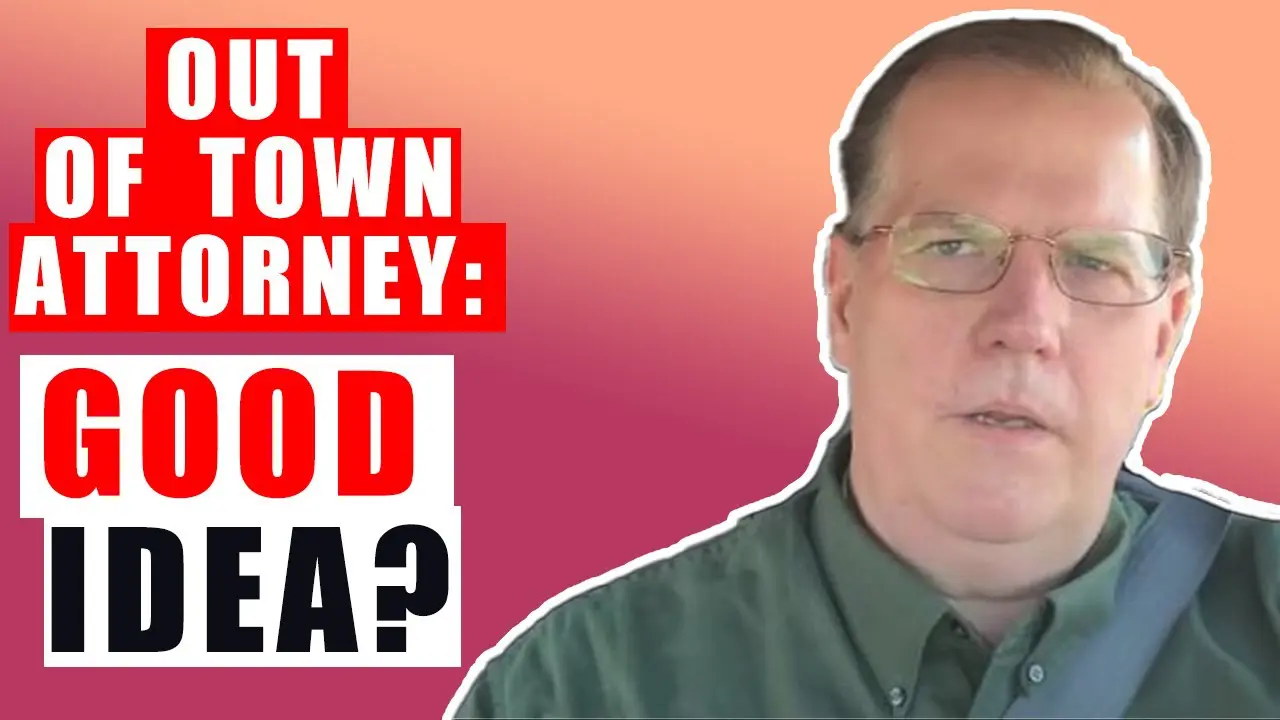
Are you better off hiring an aggressive out-of-town attorney who doesn’t care whose toes he steps on? I’m Northern Virginia criminal defense attorney Scott Nolan. And Ryan, a friend of the channel, asked his very question. So let’s talk about this.
Why some would consider an out-of-town attorney
Ryan said that he heard from a friend that, perhaps, he’d be better off hiring an attorney from out of town. That attorney would be able to afford to come in and get aggressive with the prosecutor and the judges. He could really push his case hard because it’s not going to affect him whose toes he steps on.
And I can see where Ryan is coming from with this idea. It’s an attractive idea. But it’s wrong. And I’m going to tell you why.
Why this idea is wrong
Picture a general who is always aggressive and only knows how to be audacious and attack. Sure, he may be fascinating when you watch him on the History Channel. But he may not be so great when it’s your lives that he’s leading into battle.
It is the same with an attorney. You want somebody who is going to get you the best possible results, not someone who is going to be always aggressive. And for that reason, it doesn’t really matter where that attorney comes from. It matters what that attorney knows and who he knows.
And I don’t mean that in a nepotistic way. I’m not saying, “Oh, they’ll do a backroom handshake.” I’m saying that knowing the personality of the people you’re about to sit down and negotiate with is pretty much everything.
What a good attorney must know
You need to know what sort of arguments will work and what sort of arguments will set that other attorney or that judge off. I know some of the best judges in Northern Virginia who are just really good thinkers and people who are open to new ideas. Yet they have that one particular area of the law that is just going to set them off and turn them into crazy people.
You need to know that. Perhaps you know, “That judge is great on the constitution,” but you don’t know, that this same judge has an absolute craziness for speeding cases. And you definitely don’t want to take a speeding case in front of that judge. That’s knowledge you really want your lawyer to have.
What really matters
Once I have chosen the correct tactic, whether it is cooperation, whether it is negotiation, whether it is a fight on all fronts, what doesn’t change is my dedication to my client. And that’s true of any good attorney.
Of course there are bad attorneys just like there are bad plumbers and bad car mechanics, as well as good and bad politicians. Any good attorney is going to be dedicated to the best result for his or her client. And their personal relationship with the judges and the prosecutors should not matter.
And it shouldn’t matter because those prosecutors and those judges should understand that my job is to do my best not for some array of clients, not for some potential future clients, but for this client that I’ve got right here.
Whether to take it to trial
If I see that this client should be getting a better deal than the prosecution is offering, I’m going to take that case to trial. If I see that this client is getting a good deal, a better deal than I suspect they might get at a trial, I’m going to strongly urge my client to take that deal.
And that has nothing to do with me thinking about the potential impact on my relationship with this person or my future client. I’m only considering this particular client here and what’s best for them.
And what many people fail to understand because they’re only used to lawyers on television is that the prosecutor isn’t going to get upset with the fact that I go to trial. Because I’m never going to say, “Oh, yeah? Well, we’re going to trial.” Because that’s stupid. That’s not the way lawyers work.
How it really works
We look at the elements of the case. They say my client has committed a crime. I say, “I don’t think you have the evidence for it.” They say, “Well, we think we do.” I say, “Okay. What’s a good trial date for you?” That’s it.
There’s no aggression. They don’t dislike me, and I don’t dislike them on the basis of our decisions for any individual client. They may say to me, “Scott, are you crazy? You’ll never win this case.” And I may say, “Oh, I don’t think you’re reading this case right.” But we don’t get aggressive with each other. We don’t get nasty with each other.
Or perhaps I should say, “That’s very, very rare.” It happens on television far more often than it happens in reality. So, my choice of taking my client to trial or taking a deal is based entirely on what I think is best for that client, not what I think is best for the next client.
I hope this answers your question, Ryan. And if you or anyone else has any questions for me on this topic or any other topic of the law, give me a call or contact my office. I’ll be happy to talk to you about it.



